Have you ever wondered if there's a secret ingredient that could make your rose garden flourish even more? What if we told you that the answer might be sitting right in your kitchen? Yes, your used coffee grounds could be the game-changer your roses have been waiting for! In this blog post, we'll explore the benefits and potential risks of using coffee grounds for roses, as well as provide you with practical tips to ensure success in your rose garden. So, do roses like coffee grounds?
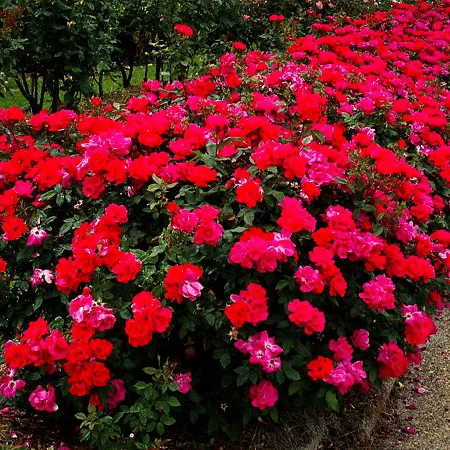
With the right approach, coffee grounds can provide essential nutrients and improve soil structure for roses, making them healthier and more vibrant. However, it's crucial to use them in moderation to avoid potential issues. So let's dive into the world of coffee grounds and roses to discover how your morning cup of joe can help your garden thrive, and answer the question: do roses like coffee grounds?
Short Summary
Coffee grounds can be beneficial to roses in moderation, providing a nutrient boost and improving soil quality.
When using coffee grounds for roses, it is important to take caution with regards to nitrogen overload, pest attraction and pH imbalance.
Starting small with organic coffee grounds and exploring alternative uses such as composting or mulching are key steps for successful use of coffee grounds on rose plants.
The Impact of Coffee Grounds on Roses
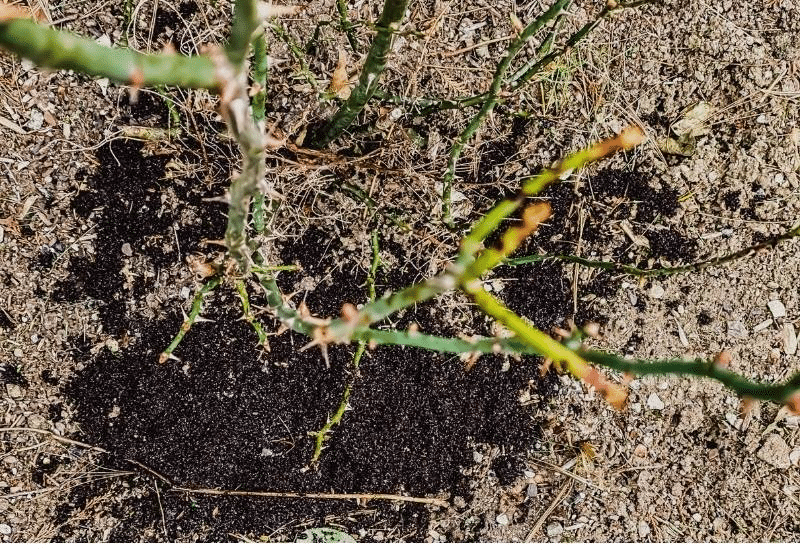
Believe it or not, coffee grounds can work wonders for your rose garden. They are rich in nitrogen, which is essential for healthy growth, and they can also help improve soil structure. When used in moderation, coffee grounds provide a nutrient boost and enhance the soil, making it an ideal environment for roses to flourish.
However, it's important to exercise caution when adding coffee grounds to your rose plants. Overuse can lead to nitrogen burn, root damage, and even the demise of your beautiful roses. To avoid these potential issues, it's crucial to understand the proper application of coffee grounds, as well as alternative uses that can benefit your roses without causing harm.
Nutrient Boost for Roses
Coffee grounds are rich in essential nutrients like nitrogen, phosphorus, potassium, magnesium, iron, and calcium, which are all beneficial for your roses. Nitrogen, in particular, plays a vital role in promoting healthy leaf growth, which is crucial for the overall well-being of your rose plants.
However, it's important to note that fresh coffee grounds can be too acidic for roses, which require a soil pH between 6.0 and 6.5. Used coffee grounds, on the other hand, have a neutral to slightly acidic pH (between 6.5 and 6.8), making them a perfect choice for fertilizing roses.
When using coffee grounds as a nutrient boost, it's best to start small and monitor the progress of your roses. Avoid using non-organic coffee grounds, as they may contain pesticides and other harmful chemicals. Organic coffee grounds are a safer option, and they can be gradually increased in quantity as needed.
One effective method for applying coffee grounds to roses is creating a “coffee water” mixture by adding one cup of used coffee grounds to one gallon of water, letting it sit overnight, and then watering your roses with the filtered liquid.
Soil Improvement
In addition to providing essential nutrients, coffee grounds can also improve the quality of the soil in your rose garden. When added to the soil, they help enhance its structure and drainage, allowing the roots of your roses to penetrate deeper and access valuable nutrients more efficiently. By improving soil structure, coffee grounds can also promote the growth of beneficial soil microbes, which play a crucial role in maintaining a healthy soil ecosystem.
To use coffee grounds for soil improvement, simply sprinkle them around the base of your rose plants and cover them with a layer of organic compost or wood chips. This will help maintain moisture in the soil while allowing excess water to drain, creating an ideal environment for your roses to thrive.
Blending coffee grounds with sand can also help break down heavy clay soils and further improve soil structure and drainage.
Proper Application of Coffee Grounds for Roses
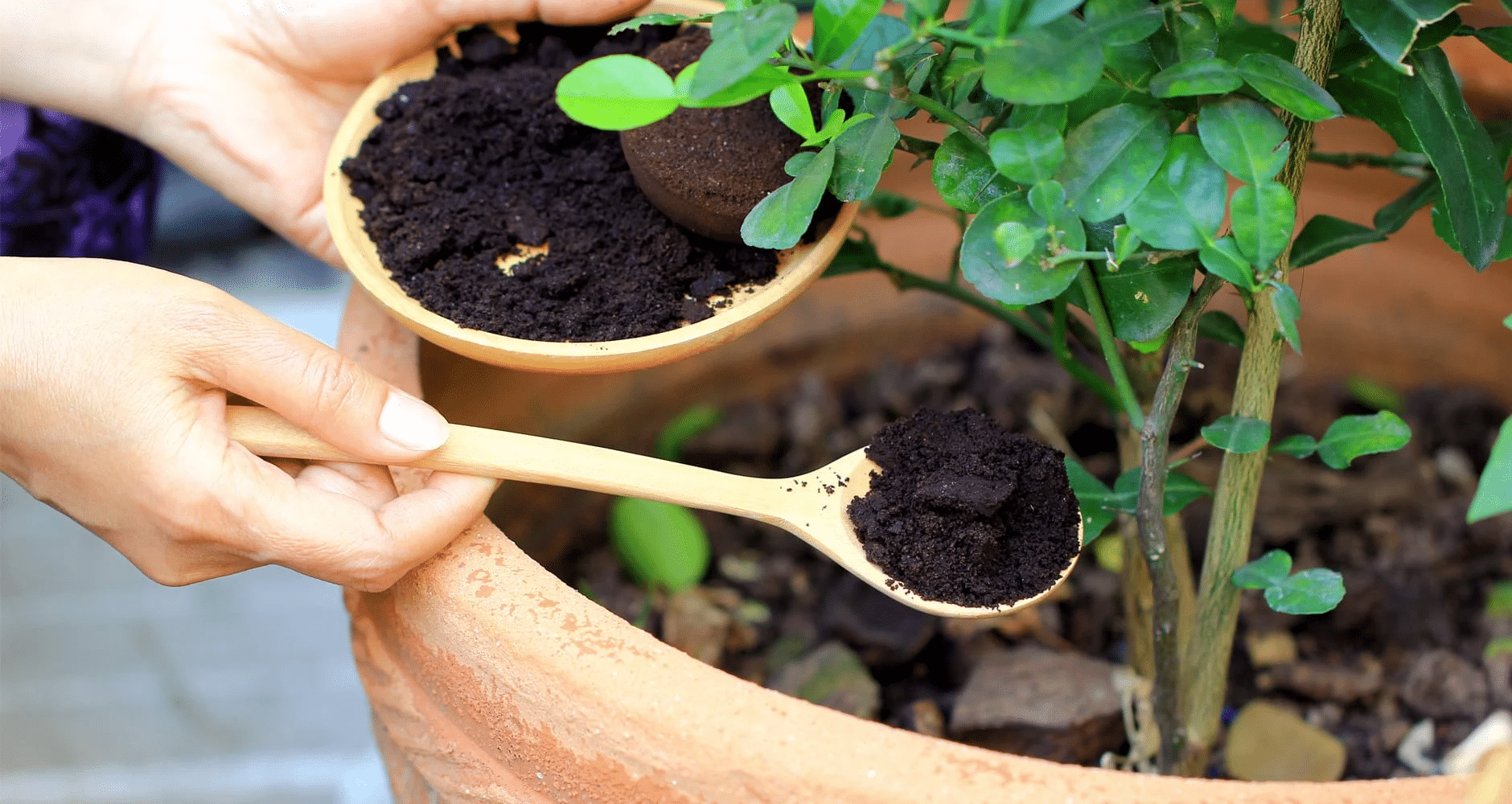
Knowing the correct timing, frequency, and quantity of coffee grounds to use is essential for reaping the benefits without harming your roses. By following the recommended guidelines, you can harness the power of coffee grounds to nourish your rose plants and create a thriving garden.
It's important to remember that moderation is key. Overuse of coffee grounds can lead to issues such as nitrogen burn and pH imbalances, which can have detrimental effects on your roses. So let's take a closer look at the proper application of coffee grounds for roses to ensure the best results.
Timing and Frequency
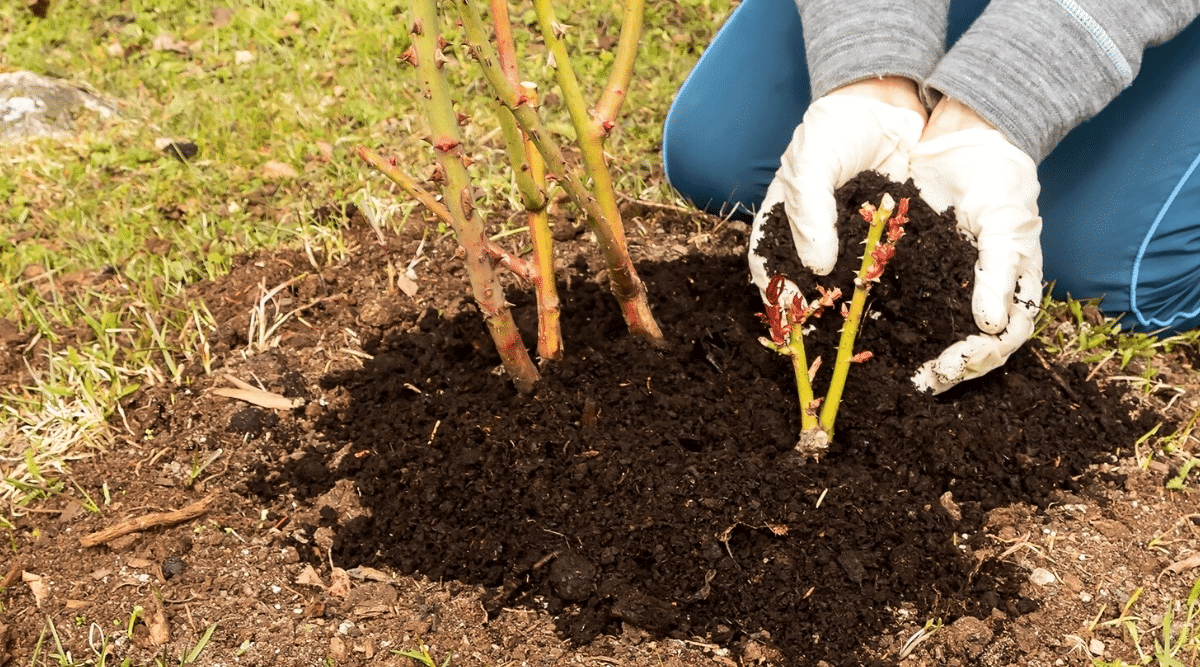
The optimal time to fertilize roses with coffee grounds is at the beginning of the growing season, typically in April or May. During the growing season, it's recommended to apply coffee grounds every 15 days to provide your roses with a steady supply of nutrients. In total, you should aim to apply half a pound of coffee grounds per mature rose plant per year.
Applying coffee grounds later in the season may not give them enough time to decompose, which could potentially harm your roses. Additionally, using nitrogen-based fertilizer after mid-August can result in fragile foliage that is susceptible to frost damage.
By following these timing and frequency guidelines, you can ensure that your roses receive the nutrients they need without putting them at risk.
Quantity and Distribution
When it comes to applying coffee grounds to your roses, it's important to use the right amount. As mentioned earlier, half a pound of coffee grounds per mature rose plant per year is the recommended quantity. This will provide your roses with the necessary nutrients without causing any harm.
In addition to the quantity, the distribution of coffee grounds around your rose plants is also crucial. It's important to ensure an even distribution of coffee grounds around the soil of each rose plant, so that the nutrients are accessible to the roots and can be absorbed efficiently.
By following these guidelines for quantity and distribution, you can maximize the benefits of using coffee grounds for your roses while minimizing the risks.
Alternative Uses of Coffee Grounds in Rose Gardening
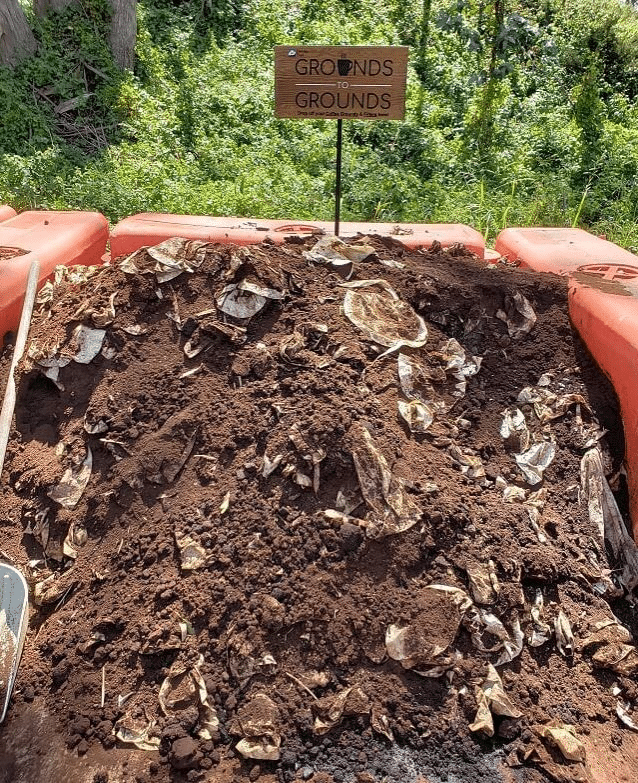
While applying coffee grounds directly to your roses can be beneficial, there are also alternative uses of coffee grounds in rose gardening that can provide additional benefits. These include composting with coffee grounds and using them as mulch. Both of these methods can help improve the overall health of your rose garden and allow you to make the most of this valuable resource.
By exploring these alternative uses, you can further enhance the benefits of coffee grounds for your roses while avoiding potential risks associated with direct application. Let's take a closer look at these alternative methods and how they can benefit your rose garden.
Composting with Coffee Grounds
Composting with coffee grounds is an excellent way to create a balanced combination of nitrogen and carbon, which is essential for healthy soil and plant growth. By adding coffee grounds to your compost heap, you can improve the quality of your compost and provide your roses with even more valuable nutrients.
The process of composting with coffee grounds involves layering coffee grounds between dry leaves and fresh grass clippings or mixing them with shredded paper and coffee filters in equal amounts. Once added to the compost heap, the coffee grounds will decompose and blend with other organic material, creating a nutrient-rich compost that can be used as mulch for your roses.
This method not only allows you to utilize coffee grounds in a beneficial way, but also helps reduce waste and promote a more sustainable gardening practice.
Coffee Grounds as Mulch
Using coffee grounds as mulch is another beneficial alternative to applying them directly to your roses. As mulch, coffee grounds can help improve drainage and water retention, allowing your roses' roots to access nutrients more efficiently. In addition, coffee grounds can help deter pests and attract earthworms, which are beneficial for maintaining a healthy soil ecosystem.
To use coffee grounds as mulch, simply spread them around the base of your rose plants and cover with a layer of organic compost or wood chips. This will create a protective layer that retains moisture while allowing excess water to drain, resulting in a healthier environment for your roses to thrive.
By using coffee grounds as mulch, you can take advantage of their benefits without the potential risks associated with direct application.
Potential Risks and Drawbacks
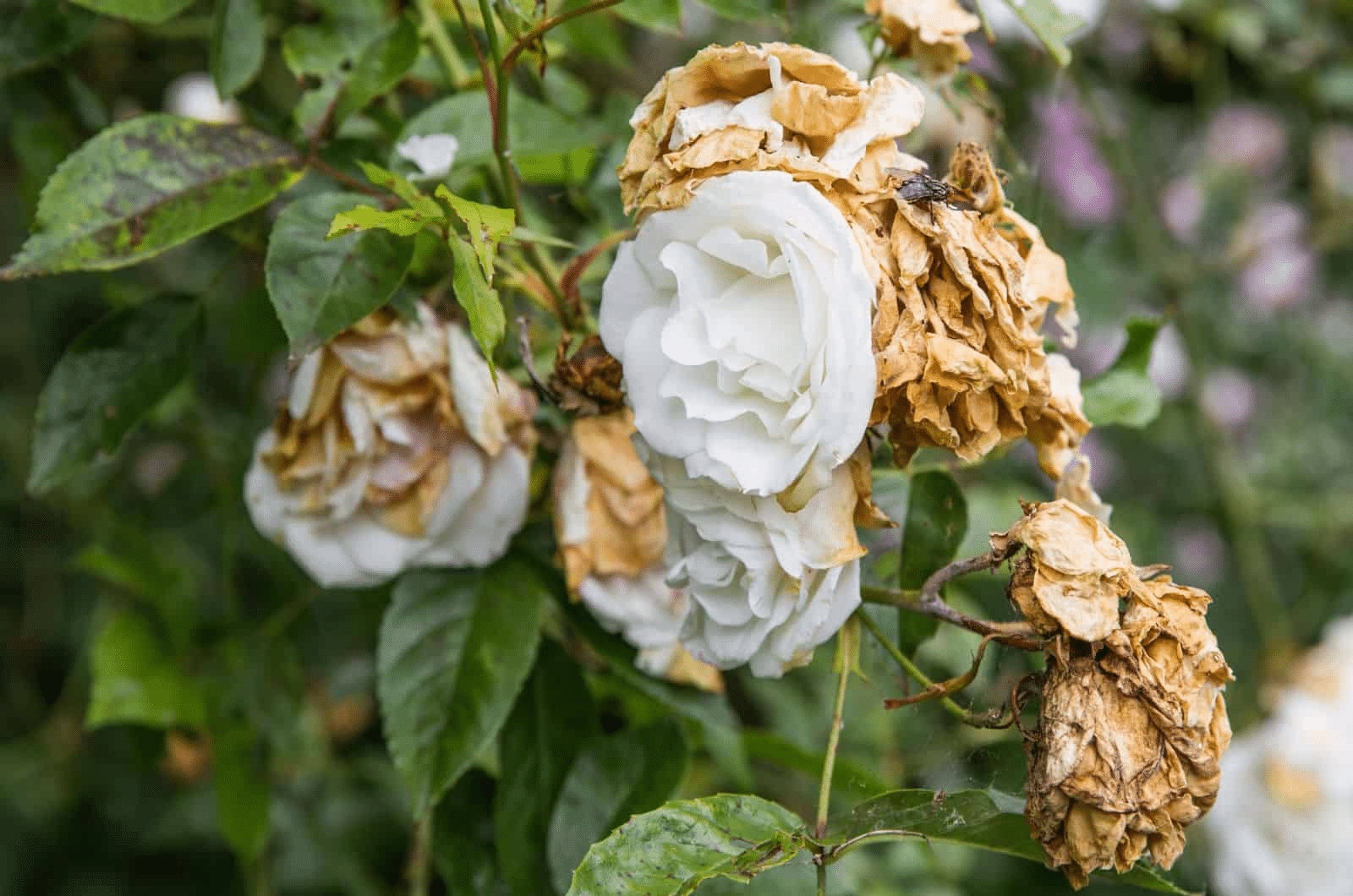
While coffee grounds can offer numerous benefits for your roses, it's important to be aware of the potential risks and drawbacks associated with their use. As mentioned earlier, using too much coffee grounds can cause nitrogen burn, pest attraction, and pH imbalances. To avoid these issues, it's crucial to use small amounts of coffee grounds and monitor their effects closely.
By being mindful of the potential risks and drawbacks, you can make informed decisions about how to best utilize coffee grounds for your roses. In the following sections, we'll provide some tips for success to help you make the most of this resource while minimizing any potential harm.
Nitrogen Overload
Nitrogen overload is a potential risk when using coffee grounds on roses, as excessive amounts of nitrogen can lead to nutrient toxicity, causing harm to your plants. The delicate roots of roses can be burned by too much nitrogen, resulting in discolored leaves, increased pest activity, and disrupted pH balance.
To prevent nitrogen overload, it's important to adhere to the recommended amount of coffee grounds per rose plant and keep track of your roses' progress. By using a cautious approach and monitoring the effects of coffee grounds on your roses, you can ensure that your plants receive the nutrients they need without putting them at risk.
Pest Attraction
Another potential risk of using coffee grounds on roses is the attraction of pests. While coffee grounds can help deter some pests, they may also attract bugs such as grubs, gnat larvae, aphids, mites, and flies, which can cause damage to your roses.
To mitigate this risk, use coffee grounds in moderation and combine them with other natural deterrents for optimal results.
pH Imbalance
Lastly, excessive coffee grounds can cause pH imbalances in the soil, resulting in stunted growth and yellowing leaves for your roses. To avoid this issue, start with a small amount of coffee grounds and monitor the pH of the soil, adjusting the amount of grounds used as needed.
This will help you maintain a healthy pH balance in your rose garden, allowing your plants to thrive.
Tips for Success with Coffee Grounds and Roses
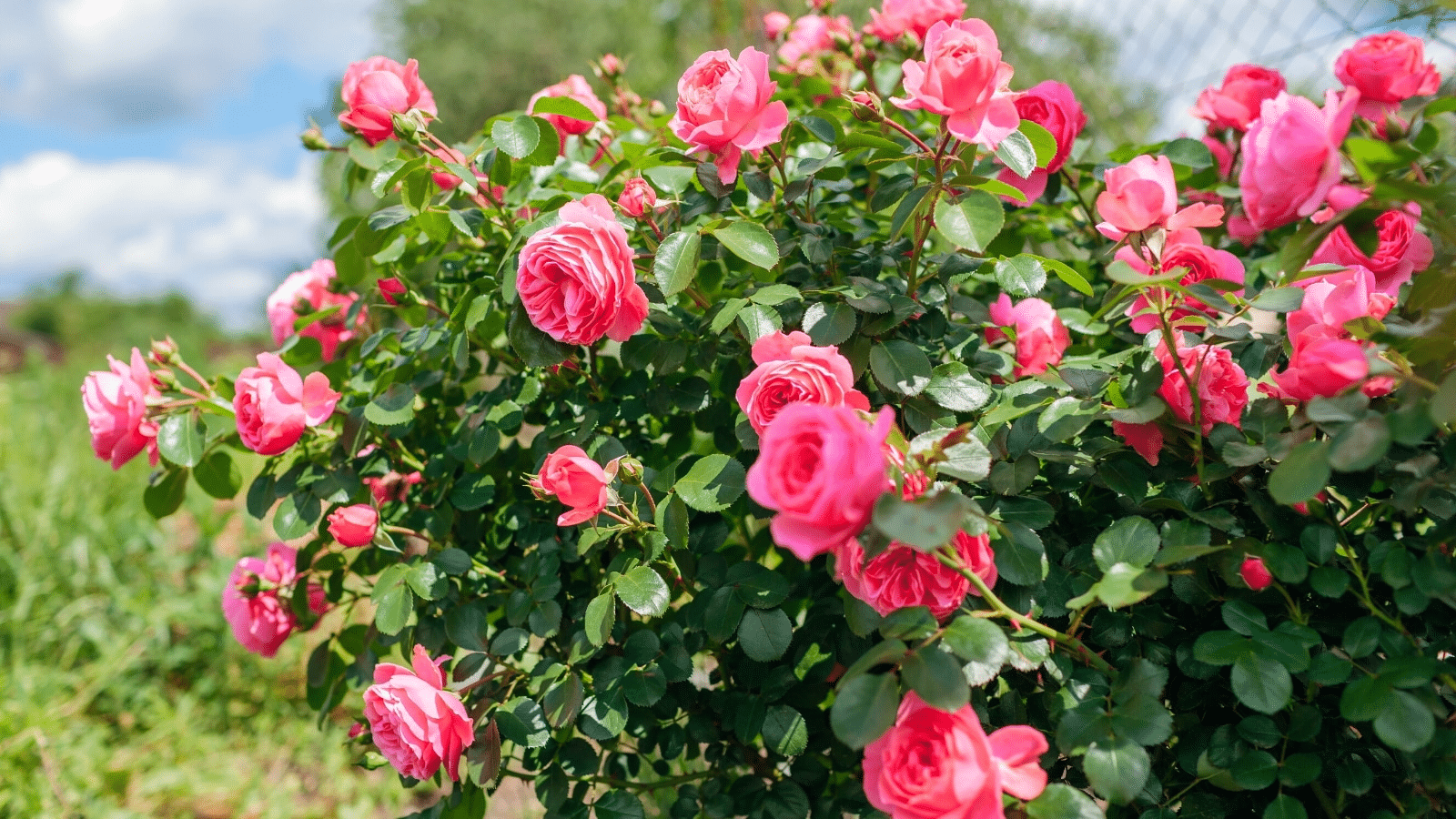
Now that we've explored the benefits, risks, and alternative uses of coffee grounds for roses, let's recap some key tips for success. First and foremost, start small when using coffee grounds on your roses, and gradually increase the quantity as needed. This will help you avoid potential issues such as nitrogen burn and pH imbalances.
Second, always use organic coffee grounds, as non-organic grounds may contain harmful chemicals that can damage your roses.
Finally, don't forget to explore alternative uses of coffee grounds in your rose garden, such as composting and mulching, to make the most of this valuable resource. By following these tips, you can successfully utilize coffee grounds to help your roses flourish and create a stunning garden that will be the envy of your neighbors.
Start Small and Monitor Progress
Beginning with a small amount of coffee grounds and monitoring the progress of your roses is crucial for success. This will allow you to adjust the quantity of grounds used as necessary, ensuring that your roses receive the nutrients they need without causing harm.
Taking a cautious approach and keeping a close eye on your roses will help you make the most of the benefits of coffee grounds while minimizing any potential risks.
Use Organic Coffee Grounds
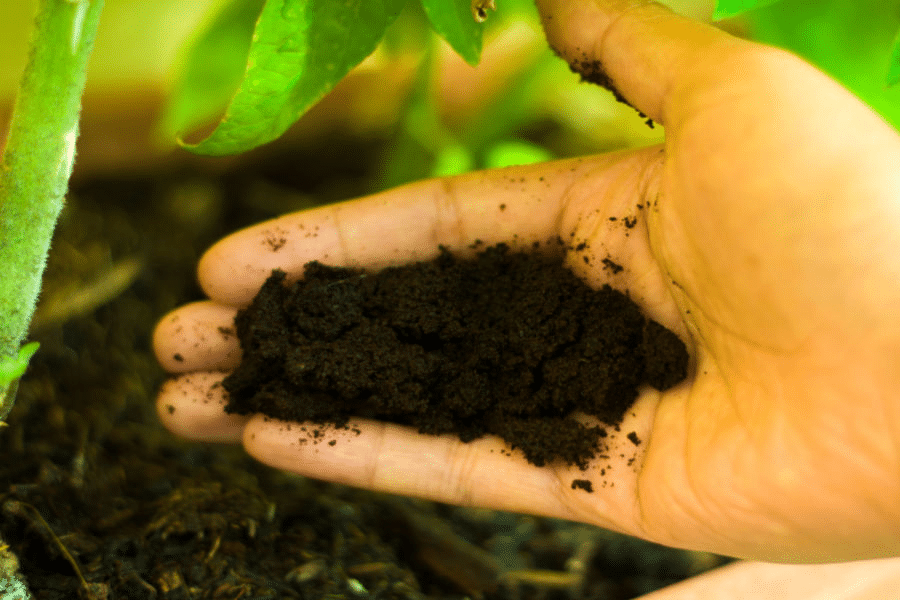
Using organic coffee grounds is a key tip for success when incorporating them into your rose garden. Organic grounds are free from harmful chemicals and pesticides, making them a safer option for your roses and the environment. Additionally, organic coffee grounds typically have a lower acidity level, which is more suitable for roses.
By choosing organic coffee grounds, you can ensure that your roses receive the best possible care and nutrients.
Summary
In conclusion, coffee grounds can be a valuable resource for your rose garden, providing essential nutrients and improving soil structure when used correctly. By following the recommended guidelines for application, timing, frequency, and quantity, you can harness the power of coffee grounds to nourish your roses and create a thriving garden.
However, it's important to remember that moderation is key and to be mindful of potential risks and drawbacks. By starting small, using organic coffee grounds, and exploring alternative uses such as composting and mulching, you can make the most of your morning cup of joe and give your roses the boost they need to be the envy of your neighborhood. So, go ahead and sprinkle those coffee grounds, and watch your roses bloom like never before!
Frequently Asked Questions
How do you use coffee grounds on roses?
Using coffee grinds to fertilize roses is a simple and effective way to keep them healthy. To do so, you can either add the grinds (2 cups) directly to the surrounding soil around your roses or make a coffee fertilizer by combining 2 cups of coffee grinds with 2 gallons of water in a watering can and pour it around the soil.
Either way, this is an excellent way to give your roses the nutrition they need.
Are coffee grounds and eggshells good for roses?
Coffee grounds and eggshells make excellent additives for rose garden beds. Adding coffee grounds adds nitrogen, which promotes healthy foliage growth. Eggshells add calcium, which is essential for growing strong and healthy blooms. When used together in the garden bed, roses will reap the benefits of these natural ingredients.
Which plants do not like coffee grounds?
Therefore, it is best to avoid using coffee grounds with plants that don't prefer acidic soil or high nitrogen levels in the soil. This includes tomatoes, rosemary, lavender and asparagus.
Other plants such as geraniums, asparagus ferns, Chinese mustard and Italian ryegrass can also be adversely affected by coffee grounds.
How often should you add coffee grounds to plants?
For optimal health benefits, it is recommended to add coffee grounds to plants on a weekly basis. However, be sure to monitor the soil pH level to make sure it does not become overly acidic.
Additionally, avoid adding too much in one go as this can affect the plants adversely.


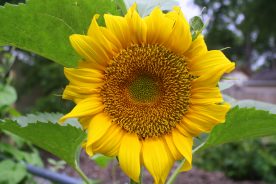
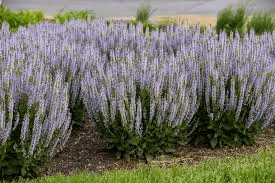

No Comments